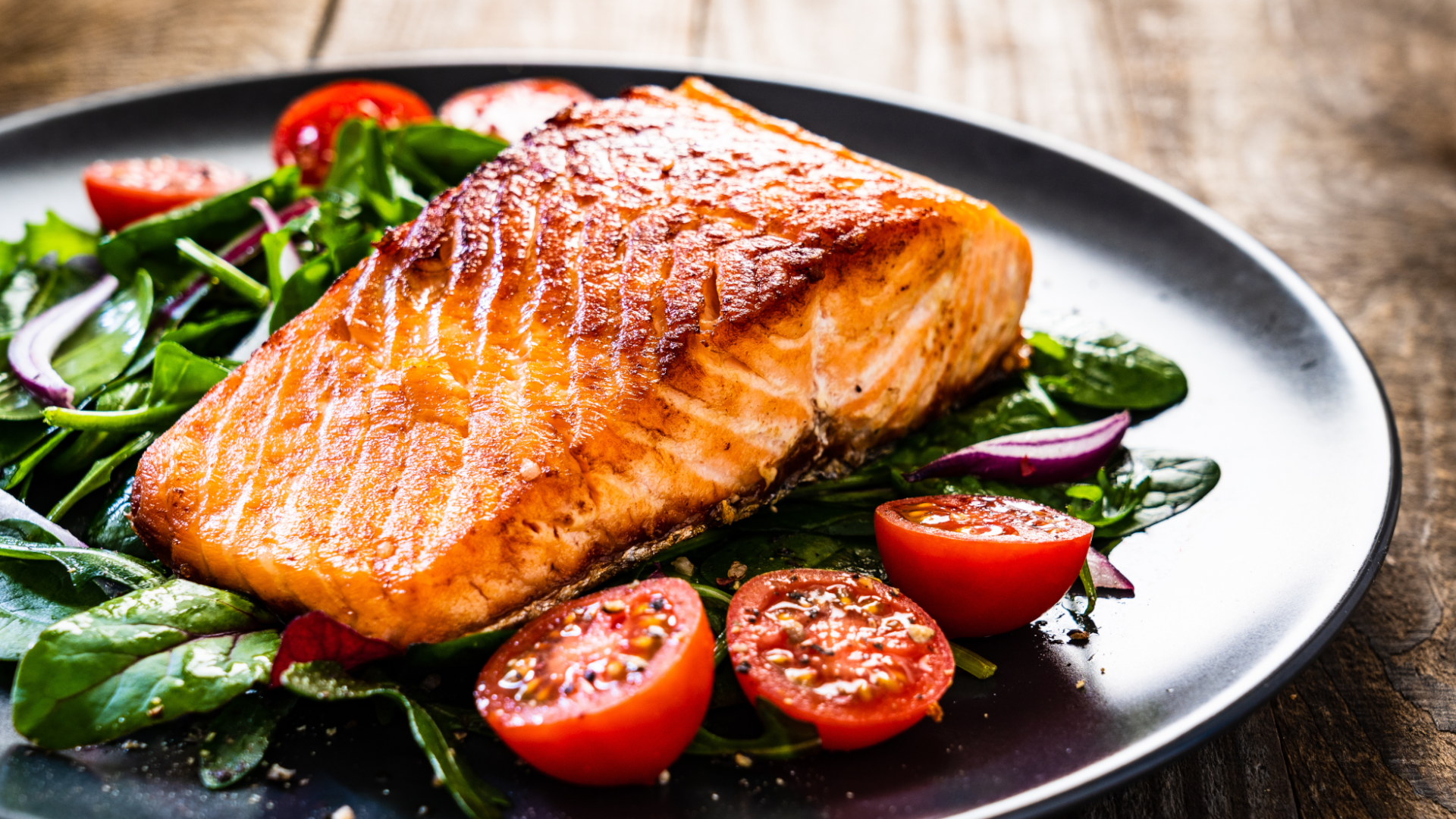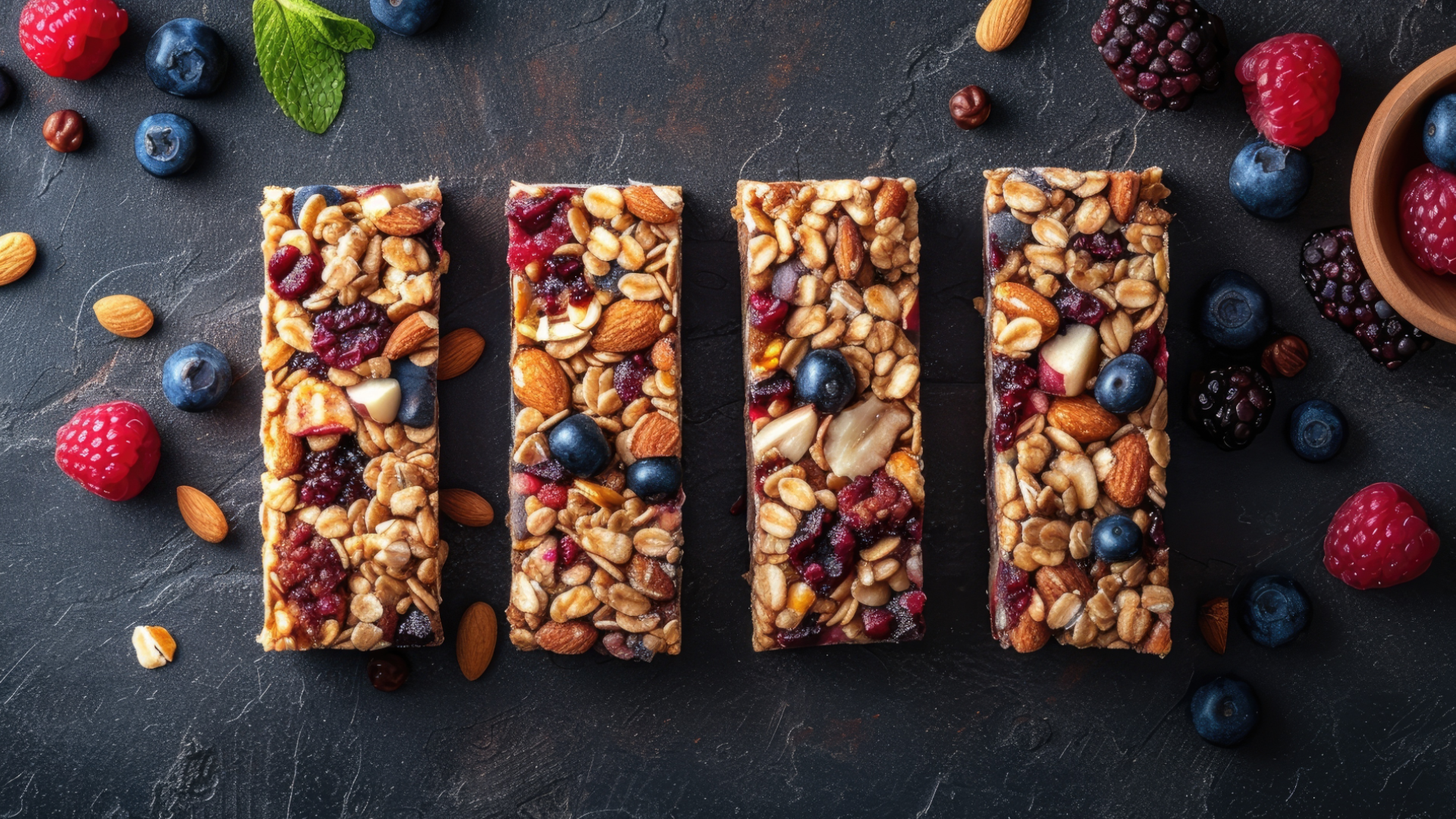Nutrition plays a key role in sports and athletic success. We all know that we need to eat healthily to improve our performance and that having a well-optimized diet can make us better athletes and players.
Knowing this is important, but it's just as vital to understand the science behind nutrition for athletes. This is so that you can make informed decisions about what foods are best for fuelling your body before, during, and after activity.
After all, you don’t want to be referring back to guides for the rest of your life - you will want to be able to make your own decisions in line with nutritional science.
Indeed, there's no universal performance nutrition plan and diet, as this will differ for each sport, individual, and training focus. This means that to perform to your highest potential, you need to understand the science to create the best plan possible.
This blog post will explore sports nutrition science - from common myths to facts about nutrients, fuel timing strategies and meal planning ideas - so you can fine-tune your approach for peak performance.
This is what you need to know:
What is sports nutrition?
Sports nutrition is the branch of nutrition dedicated to helping athletes and active individuals achieve their performance goals through proper diet and exercise. Athletes need a balanced diet to fuel their workouts and recover after each session.
Sports nutrition helps athletes determine what foods and supplements to consume, how much and when to consume them, and how much fluid to drink to optimise their performance.

With a proper understanding of sports nutrition, athletes can perform to the best of their abilities. It's crucial to remember that every athlete is unique and requires a personalised nutrition plan to achieve their specific goals.
Many different parts make sports nutrition; depending on how thorough you want to be, you can focus on just a few or all of them.
The two main components of sports nutrition are macro and micronutrients, and you'll be in a much better position to adopt sports nutrition in your own plan if you know what these are.
What are macronutrients?
Also known as macros, macronutrients are the essential fuel for athletes that we need in large quantities to function properly.
They comprise a few main types, including carbohydrates, proteins and fats. Essentially, the macros make the dietary information on the packets of your food products and can help give you a better overview of what you're putting in your body.
Having the right proportion of these macros is essential, ensuring that we're keeping fit and have enough energy to train.
Different macros are more abundant in certain types of foods. You'll find a lot of one macro in one food and more of another in a different food option.
Carbohydrates are the primary energy source for our bodies and are contained in foods such as grains, vegetables and fruits.
Proteins are responsible for building and repairing tissues in our bodies and can be consumed in meats, fish, dairy products, and beans.
Fats serve as a secondary energy source and are usually found in foods like nuts and fish. Getting the right balance of macronutrients is critical to maintaining a healthy diet and ensuring that our bodies can perform at their best.
Different macros explained
Here's a deeper look at the main macros you should know and how they influence your overall nutrition:
1. Carbohydrates
Carbohydrates are one of the three main macronutrients essential for human health.
Carbs are broken down into glucose, which the body uses for energy.
There are two types of carbohydrates: simple carbohydrates, which are found in foods like sweets and cake, and complex carbohydrates, which are found in foods like vegetables and whole grains.
These different carbs release their energy quickly or slowly, and getting the right mix ensures you have enough energy to perform your day-to-day tasks and excel in your sport.
2. Protein
Protein is another primary macronutrient and is essential for human health. The body uses protein for growth and repair, which your muscles need to promote growth and recovery, especially after a workout.
Just like with carbs, there are two primary sources of protein. These are animal protein, found in meat, poultry, and fish, and plant protein, found in beans, nuts, and seeds, but this can be broken up into even more distinct types. 
To ensure that you have enough protein in your diet, many people have used protein powder to help ensure they can get enough without consuming too much food.
3. Fat
Fat is the final of the main three macronutrients and, despite its bad reputation, is really important. Fat provides the body with energy, helps absorb vitamins, and is also great for brain function. 
You can get saturated fat, found in animal products, and unsaturated fat, found in plant oils.
These unsaturated fats are generally healthier, and health experts recommend focusing on these ones when adding fat to your nutrition plan.
4. Fiber
Fiber is a type of carbohydrate that the body cannot digest.
It helps you to regulate digestion and can help to prevent you from becoming constipated.
Foods high in fiber include fruits, vegetables, whole grains, and legumes. It's vital to keep our gut health in good condition, and it's crucial to ensure you have enough in your diet.
5. Water
Many people forget about water, but it is an essential nutrient your body needs to function properly.
Every cell in the body contains water and needs water to function properly. Water helps to regulate your body temperature, transport nutrients, and lubricate your joints.
What are micronutrients?
Just like how you have macros that focus on the bigger picture, you also have micros that are more specific and detailed.
Micronutrients are the smaller, but no less essential, building blocks of a healthy diet. These nutrients are required in smaller quantities but are equally important for optimal health.
They include vitamins, minerals, and other compounds, such as antioxidants, that protect against cell damage. These tiny nutritional powerhouses can be obtained from various foods, including fruits, vegetables, whole grains, nuts, and seeds.
Micronutrients play an essential role in maintaining a healthy body. A deficiency in any of them can lead to various health problems, so keeping an eye on them when building a sports nutrition plan is worthwhile.
By incorporating a varied and balanced diet, you can be sure to consume an appropriate balance of the micronutrients that your body requires to function optimally.
Different micronutrients explained
Here's a deeper look at some key micronutrients and how they can benefit your body when you train.
1. Vitamins
You need thirteen essential vitamins for your body to function properly.
You need to be aware of two primary categories of vitamins. These are water-soluble vitamins and fat-soluble vitamins. 
Water-soluble vitamins are not stored in the body and must be consumed daily, while fat-soluble vitamins are stored in your body and can be consumed less frequently.
Having a good amount of vitamins can have a range of benefits that can be cosmetic or related to your overall health.
2. Minerals
The sixteen types of minerals that our bodies need to function can be ordered into either macrominerals or trace minerals.
Macrominerals are minerals the body needs in large amounts, while trace minerals are minerals the body needs in small amounts. Common examples you will be aware of include iron and zinc.
3. Antioxidants
Antioxidants are compounds that help to protect your body against damage caused by free radicals.
Free radicals are unstable molecules that can damage cells, leading to inflammation and disease. Antioxidants help to neutralize free radicals, preventing them from causing damage to the body.
4. Phytochemicals
Phytochemicals are plant-based compounds that have a compelling variety of health benefits.
While some phytochemicals act as antioxidants, others help to reduce inflammation or boost your immune system. You can find Phytochemicals in various plant-based foods, including fruits, vegetables, whole grains, and legumes.
5. Probiotics
Probiotics are live bacteria that are beneficial for gut health. Probiotics help to maintain a healthy balance of bacteria in the gut, which is vital for digestion, immunity, and overall health.
Probiotics are found in fermented foods such as yogurt, sauerkraut, kimchi, and supplements. 
Having a healthy gut can be really beneficial to your overall health and well-being, and more studies have also suggested that your gut health can play a part in your mental health too.
How does sports nutrition change based on goals?
Sports nutrition is highly tailored to the individual and the sports and goals you're looking to achieve as an athlete. No sports nutrition plan or diet will be the same and will be tweaked in detail to ensure it works for you based on your fitness levels and current biological makeup.
That said, depending on what you're training for, your plan will follow certain practices and cues based on scientific research and past experience. Here's a look at how your plan may differ depending on what you're specifically training for:
Nutrition for strength
When working on your strength, you'll typically use a lot of resistance training in your program, with weight training being the most popular.
Resistance training puts your body under a lot of strain and pressure, meaning that it's vital that you get the right macronutrients to aid recovery between sessions so that you can maintain performance and repair your muscles well between sessions.
This training is also high-intensity, meaning you'll need a few carbs and fats to ensure you have energy throughout the day, especially during your training periods.
When training for strength, you'll likely see increases in protein intake to help you increase and maintain a powerful yet lean body mass. Based on research, you'll need around 1.2g to 3g of protein per kilogram of body weight per day to ensure you have enough to sustain yourself.
Nutrition for endurance
Endurance training and sports are considered programs that last between one to three hours that range from moderate to high-intensity exercise. 
When training like this, your nutrition plan will be altered to include more simple and complex carbohydrates to ensure you have long-term and short-term energy.
When training for endurance, you should aim for a sweet spot between 6g to 10g per kilogram of body weight in carbohydrates daily, with the right one for you, depending on your activity and intensity levels.
You'll also need an increase in fat as this can be used as a source of long-term energy when training for such long distances and times. You'll also need to be strict on your fluid intake to ensure you're replacing the electrolytes you may lose as you sweat.
Nutrition for competition
Your nutrition plan will change and alter a lot when preparing for competition and will depend on what you're preparing for. For example, if you're preparing for a competitive race, replacing your usual proteins with carbs will be a great way to help you store up your glycogen levels to help you perform well.
If your sport focuses more on strength, your plan will alter to help promote muscle and lean mass development. It will all depend on the sport and activity you're competing in, so it's best to get help when tailoring your nutrition plan.
Athletes are made in the kitchen…
Although, as an athlete, you may find that most of your time is spent in the gym or on the field or track, the truth is that your full potential is achieved by being disciplined and performing well in the kitchen.
What you eat plays a massive role in how well you can do at your sport, so it's important that you eat right and get your nutrition spot on to maximise your output.
It can be an intimidating and scary world for first-timers to start focusing on their sports nutrition, but with a solid understanding of macros and micros, you'll be in a better position to shape a plan that suits your goals and sport.
To ensure that you're getting the nutrients you need, be sure to use the supplements available at Crazy Nutrition.
With many options available, you'll find something that perfectly suits your specific plan and goals.



